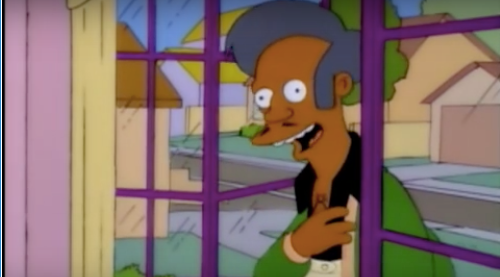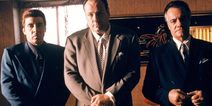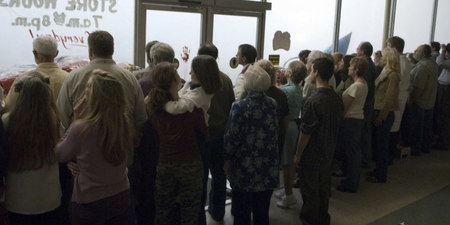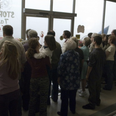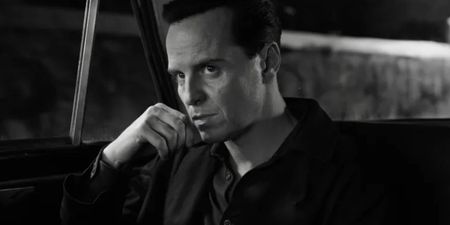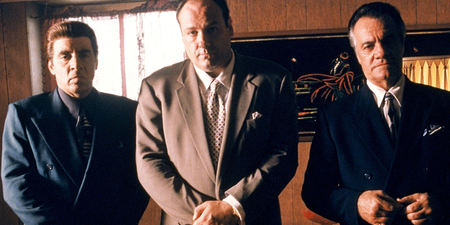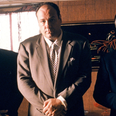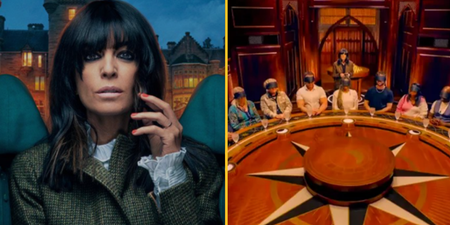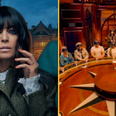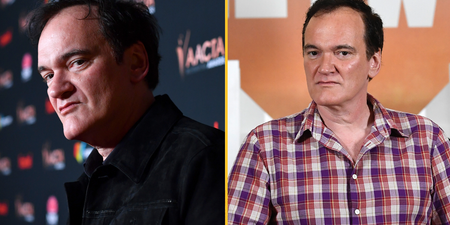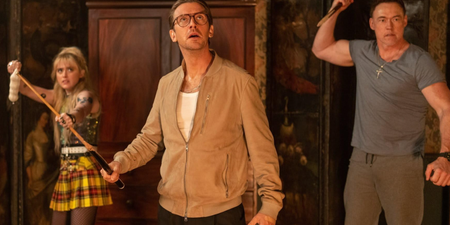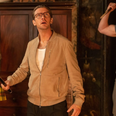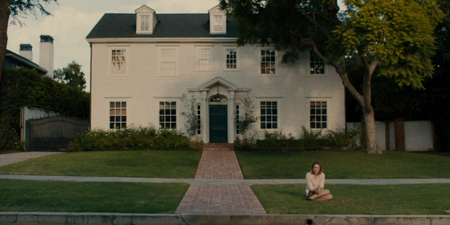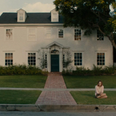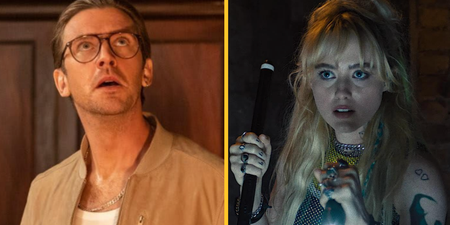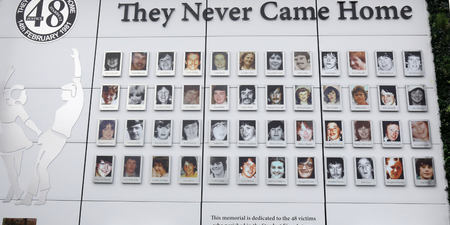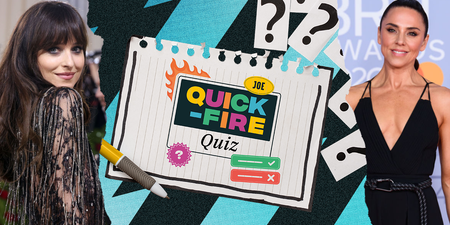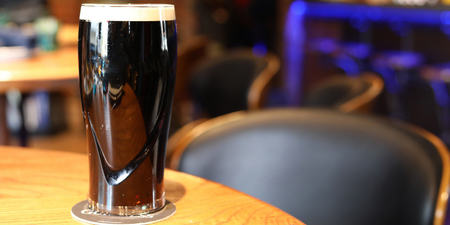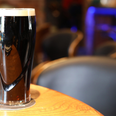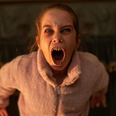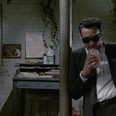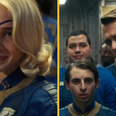Forgive me for paraphrasing but: “Stop, stop, it’s already dead.”
The saddest thing might be that The Simpsons is still so dearly beloved. Even now, the Ireland Simpsons Fans Facebook page boasts just under 40,000 members and takes in hundreds of new posts a day — each one a tribute to the masterful and timeless comedy crafted by the show’s creators, writers and artists in its early days.
Many have done their best to pinpoint exactly what The Simpsons lost after its first decade on air. At first, it was hard to put a finger on, but now you can point at virtually any gag in any recent episode and you’d find an example of how the show has utterly given up on itself.
The show’s most recent episode, No Good Read Goes Unpunished, is a gaping wound where the show’s funny bone used to be. A malignant tumour in its brain blocking the path of any possible introspection whatsoever.
The scene that so many have taken issue with is a thinly-veiled response to the criticisms of the character Apu Nahasapeemapetilon that arose from Hari Kondabolu’s 2017 documentary The Problem with Apu.
#TheSimpsons completely toothless response to @harikondabolu #TheProblemWithApu about the racist character Apu:
"Something that started decades ago and was applauded and inoffensive is now politically incorrect… What can you do?" pic.twitter.com/Bj7qE2FXWN
— soham (@sohamberlamps) April 9, 2018
Kondabolu’s documentary refers to Hank Azaria’s performance of Apu as “an impression of a white guy making fun of my father”. It’s a real sucker punch to the gut for anyone who takes any pride in their heritage, let alone a people who are under-represented on television.
It’s a criticism that applied to the show even in its heyday. However, now that the show has been abandoned by its best creative minds, its response sums up exactly how The Simpsons has lost its way.
The most jarring element of the scene is that the writers gave the line to Lisa. Lisa! A social justice warrior before social justice warriors even existed, an archetypal hero of the left, a vegetarian, Buddhist, feminist from the age of eight. Lisa, who herself fell out of love with her Malibu Stacy dolls over their inherent sexism. And we’re supposed to believe that she’s decided to champion political incorrectness just so The Simpsons’ writers don’t have to deal with their critics? Spare me.
In an era when comedy writers didn’t have to think too hard about who they made fun of, characters like Apu could comfortably slip under the radar. After all, the Springfield Kwik-E-Mart owner has always been a beloved part of the show, picking up several great storylines and gags that have little or nothing to do with his ethnicity or religion.
In “The Problem with Apu,” I used Apu & The Simpsons as an entry point into a larger conversation about the representation of marginalized groups & why this is important. The Simpsons response tonight is not a jab at me, but at what many of us consider progress.
— Hari Kondabolu (@harikondabolu) April 9, 2018
Wow. “Politically Incorrect?” That’s the takeaway from my movie & the discussion it sparked? Man, I really loved this show. This is sad. https://t.co/lYFH5LguEJ
— Hari Kondabolu (@harikondabolu) April 9, 2018
Actually, as far as his backstory, dedication to his work and family life goes, Apu is probably one of the better fleshed-out Simpsons characters that doesn’t live at 742 Evergreen Terrace. We’ve seen his mother visit from India, we’ve seen him get married, we’ve seen him have children (eight of them at once), we’ve seen him as part of the B Sharps, we’ve seen him take a bullet for James Woods.
There is real depth to Apu, despite the poor calls made at his inception — that is, to make him a stereotypical, catchphrase-driven Kwik-E-Mart owner voiced by a white man (Azaria also voices Chief Wiggum and Moe). If The Simpsons was a show with any real talent left on board, this is something you’d feel they could cleverly address. Instead, years of churning out unfunny episode after unfunny episode seems to have left the writers’ room stubborn and stuck.
Oftentimes, Apu was used as a tool to highlight Homer’s own ignorance — such as when he tried to stop Apu’s wedding while dressed up as the Hindu deity Ganesh. There’s also sweetness — such as the episode where Apu’s friendship with Homer sees Homer help Apu get ready for the American citizenship test and actively campaign against a referendum that would see illegal immigrants deported from Springfield. When Homer’s attempts to save Springfield’s immigrants failed, he sums it up with one of The Simpsons most succinct jabs at society: “When are people going to learn? Democracy doesn’t work.”
The number of Apu-centric episodes and meaty storylines given to the convenience store clerk actually only add to the frustration that The Simpsons passed up the opportunity to eschew a stereotype. Instead, they’ve doubled down.
The Simpsons, now in its 29th season, was never supposed to be South Park. In the past, it never had to subsist on the self-satisfied smugness of pissing everybody off, liberals and conservatives alike. But either way, political correctness is rarely a funny target. Making fun of Indian people or people of Indian descent who believe that Apu is an insensitive representation of their people isn’t funny; it’s just uncomfortable. It’s insensitive. It’s disrespectful in a way that benefits literally nobody besides the kind of people who rejoice when minorities aren’t listened to. We all know the kind of people I mean.
Clip via Samfid
Even the glibness of that line — “What can you do?” — says so much. As if The Simpsons, a show that has been absolutely dreadful since the early 2000s, simply could not be improved upon. As Ned Flanders’ freaky beatnik mom said back when the show was funny: “We’ve tried nothing and we’re all out of ideas.”
The Simpsons as it exists in 2018 is totally fucked, but it has been that way for years. Watching an episode of Matt Groening’s once-cherished cartoon now is like that feeling after you’ve skipped mass for five years then get dragged along at Christmas and realise that all the prayers have changed.
Where acclaimed actors once joined the cast to play once-off characters, now celebs from lists that go way down the alphabet show up to play themselves and make the most predictable joke about their own, personal lives. The Simpsons leans on this device hard, as it does the opening Couch Gags, several of which now take up two whole minutes or more and come across as nothing more than a ploy to waste time by a writers’ room who barely have one funny joke between them, let alone enough to fill up a 20-minute TV show.
Poking fun at the kind of thinking that underpins the world’s status quo, Homer once boasted that he was a “white male aged 18-49, everyone pays attention to me, no matter how dumb my suggestions are”.
It was evidence that, at some point, not only was the show aware that those people don’t have the answers for everything, but through characters like Homer, Moe Szyslack, Mayor Quimby, Krusty The Clown, Principal Skinner, Mr. Burns, Lionel Hutz, Troy McClure et al., their rank ignorance and strangeness provided the very ideological basis for the show’s humour.
Clip via itsedsworld
Throughout its early seasons, The Simpsons gracefully and savagely deconstructed the foibles of white America, casting a withering gaze on subjects like gun ownership, right-wing broadcasters, the American school system, police incompetence and both Republicans and Democrats — all the while making charming, absurd and unexpected jokes.
It would be a waste of time to argue now that The Simpsons should be cancelled. Everybody up to and including Matt Groening (but possibly excluding Matt Groening’s financial advisor) knows that the show began its plummet down through Springfield Gorge shortly after the turn of the millennium. They’ve made the executive decision to allow the show to shamble onwards and that decision seems to be final. Finishing the show with any degree of dignity or quality is no longer on the table.
The Simpsons used to be effortless. Spectacular without breaking a sweat. It’s effortless now too — predictable, drab and dime-a-dozen — because it hasn’t tried in years.
LISTEN: You Must Be Jokin’ with Aideen McQueen – Faith healers, Coolock craic and Gigging as Gaeilge
